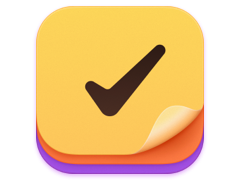By John Gruber

Finalist for iOS: A love letter to paper planners
Linked List: July 11, 2009
Saturday, 11 July 2009
- Classics (App Store Link) ★
-
My thanks to Classics for sponsoring this weeks’ DF RSS feed. Classics is a beautiful, elegant e-book reader for the iPhone and iPod Touch, available on the App Store for just $1. It comes with over a dozen works of classic literature laid out with nice typography and custom cover designs. Classics’s interface is so nice that Apple featured it in a TV commercial.
- Google Native Client ★
-
Many people are speculating that Native Client will play a significant role in Chrome OS:
Native Client is an open-source research technology for running x86 native code in web applications, with the goal of maintaining the browser neutrality, OS portability, and safety that people expect from web apps. We’ve released this project at an early, research stage to get feedback from the security and broader open-source communities. We believe that Native Client technology will someday help web developers to create richer and more dynamic browser-based applications.
Could be this is part of Google’s plan for Chrome OS. But then again, maybe not — it’s unclear how much coordination there is across various teams at Google. But if it is, then so much for Chrome OS being “just web apps”. Native Client is ambitious and interesting, but native x86 code is a far cry from “web apps”.
(And if Native Client is limited to x86 code, that would rule it out for use in Chrome OS, since Google has stated that Chrome OS will run on both ARM and x86 systems. Update: According to slide 26 in this presentation from I/O, they plan to bring Native Client to x86-64 and ARM in the future.)
- Dan Moren’s Palm Pre Review ★
-
The gist of Dan Moren’s Pre review is that the WebOS is good software, the Pre itself is sort of chintzy hardware. Lots of good details, though:
The Pre’s mail client is pretty similar to the iPhone’s, but it adds in a couple of features I’ve been longing for on the iPhone. For one thing, if you have multiple e-mail accounts, you can choose to display a unified inbox that collects the new mail for all of those accounts into one. You still have the individual inboxes for each account as well, but if you just want to skim all the mail you’ve recently received, it’s easy to do so. The mail client also allows you to flag messages you might want to go back later and it provides a single mailbox that lets you easily view flagged messages in all your accounts. Even better, the flag-state syncs to your other clients, so when I looked later, the same messages were flagged in Mail on my MacBook.
I’d love those features on the iPhone.
- Google’s Microsoft Moment ★
-
Anil Dash on Google’s changing culture:
This is one of the simplest and most obvious examples, after this week’s announcements: Google is now offering not one, but two mobile operating systems. While they undoubtedly share code, I can’t help but think back to ten years ago, when Microsoft was vehemently protesting about how much code was shared between the Windows NT/Windows 2000 operating systems and the Windows 95/98/ME operating systems. If I make a screen two inches smaller, should I use Android instead of Chrome OS? If the keyboard works with my fingers instead of my thumbs, I should use Chrome OS and not Android? I know Google is convinced its employees are smarter than everyone else in the world, but this is a product management problem, not a computer science problem.
It makes no sense to me why Chrome OS isn’t based on Android. Maybe there’s a good answer to this, but Google hasn’t given it.
